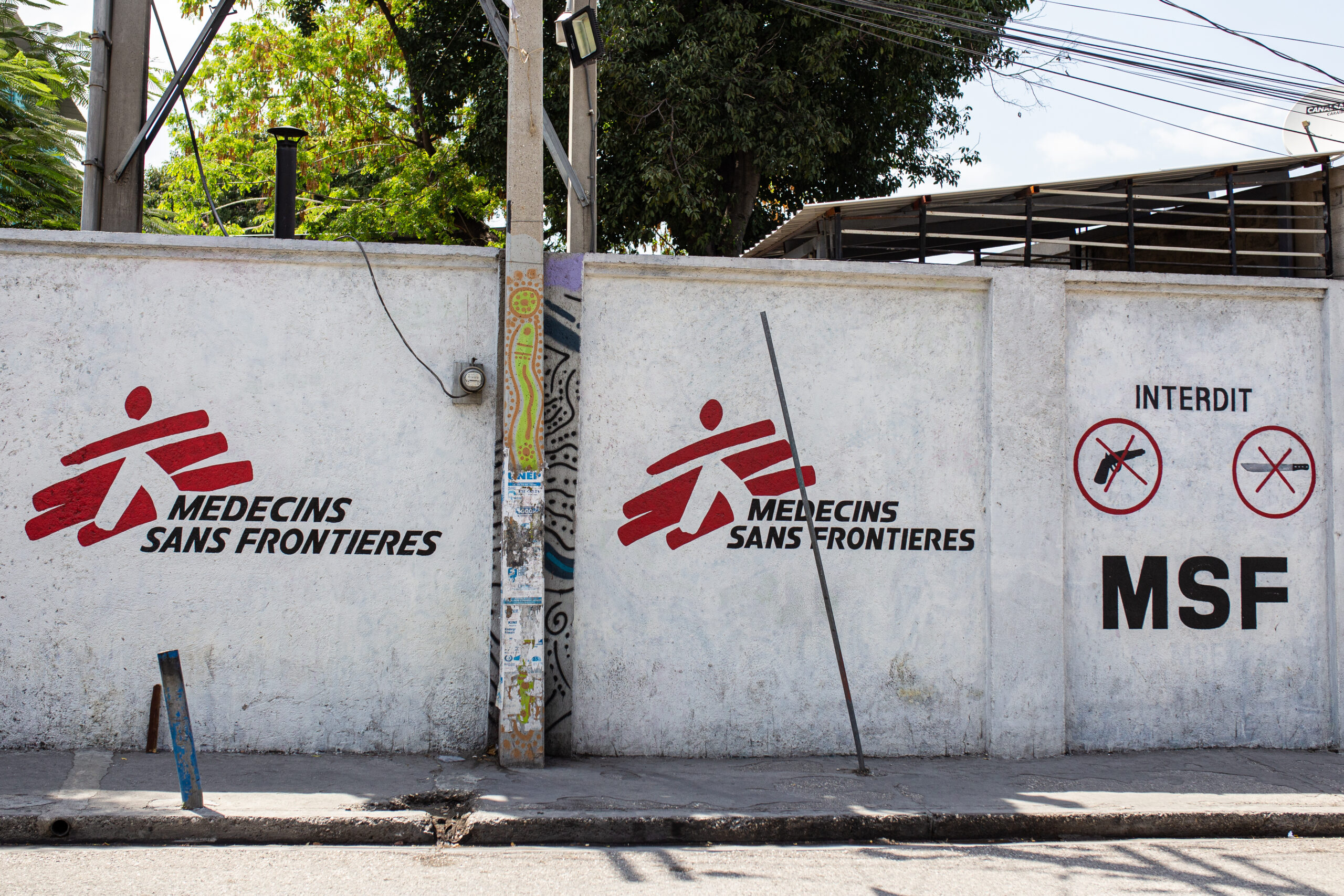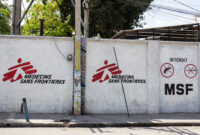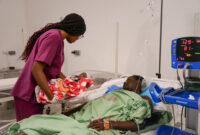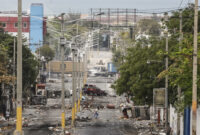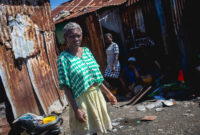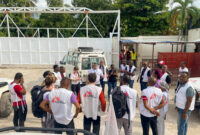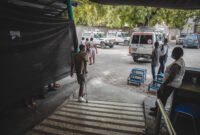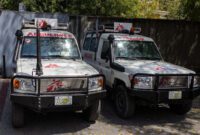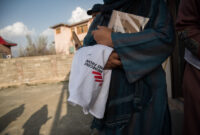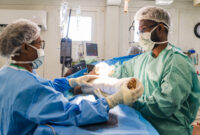Haiti: MSF withdraws from two medical facilities in Port-au-Prince as widespread violence intensifies
Following the targeted attack on March 15 against a Doctors Without Borders/Médecins Sans Frontières (MSF) convoy travelling between its Turgeau emergency centre and its Carrefour trauma hospital and in view of the deteriorating security situation in downtown Port-au-Prince, MSF has taken the difficult decision to withdraw from these two structures for a minimum period of three months. This period will allow an assessment as to whether the evolving security context offers the necessary conditions for the return of MSF teams.
On the day of the attack, MSF had already evacuated the Turgeau emergency centre, as the fighting and the front line had advanced dangerously close to the hospital, with stray bullets landing in the hospital compound every day. During the evacuation of teams from Turgeau to the Carrefour trauma hospital, clearly identified MSF vehicles, using the only access road separating the two structures were deliberately targeted by at least one hooded man in uniform. The MSF vehicles were shot 15 times. The incident has forced MSF to stop using this route.
“The Turgeau emergency centre and the Carrefour trauma hospital are closely linked in their operations. Without the possibility of using this road to transfer patients, transport personnel or deliver medical supplies, these structures can no longer function. This is why we have also been forced to withdraw from Carrefour as of April 9, 2025. This is an extremely painful decision, at a time when the people’s vital medical needs continue to grow,” says Benoît Vasseur, MSF country director in Haiti.
“The extreme suffering of people in Haiti makes this decision all the more heartbreaking, but a dead or injured doctor or nurse can do nothing for patients in need.”
Benoît Vasseur, MSF country director in Haiti
At these two medical structures, MSF teams noted an alarming increase in the number of victims of violence. Between January and March 2025, MSF treated more than 550 people for violent trauma. At the same time, these two medical facilities carried out over 3,600 medical consultations and treated more than 3,600 emergency cases over the same period. They were the only medical facilities in the area to offer free care to victims of road accidents and domestic accidents, or to refer the patients to appropriate facilities.
Despite these withdrawals, MSF is continuing its activities in other medical facilities in Port-au-Prince and the south region of Haiti. The Tabarre trauma reference centre continues to treat victims of serious burns, accidents and violence. Hôpital Drouillard in Cité Soleil maintains a 24-hour emergency service, which includes physical and mental health treatment for survivors of sexual and gender-based violence. The Pran Men’m clinic in Delmas continues to care for these survivors, providing them with appropriate medical and psychological support, while also supporting the Isaïe Jeanty maternity hospital. Since 2021, MSF has also been running mobile clinics to several sites for displaced persons and disadvantaged neighbourhoods in Port-au-Prince. However, medical transport has been suspended for all MSF teams in Port-au-Prince. Finally, in the south region, notably in Port-à-Piment and in the surrounding area, MSF continues to provide emergency obstetric and neonatal care, as well as maternal health services.
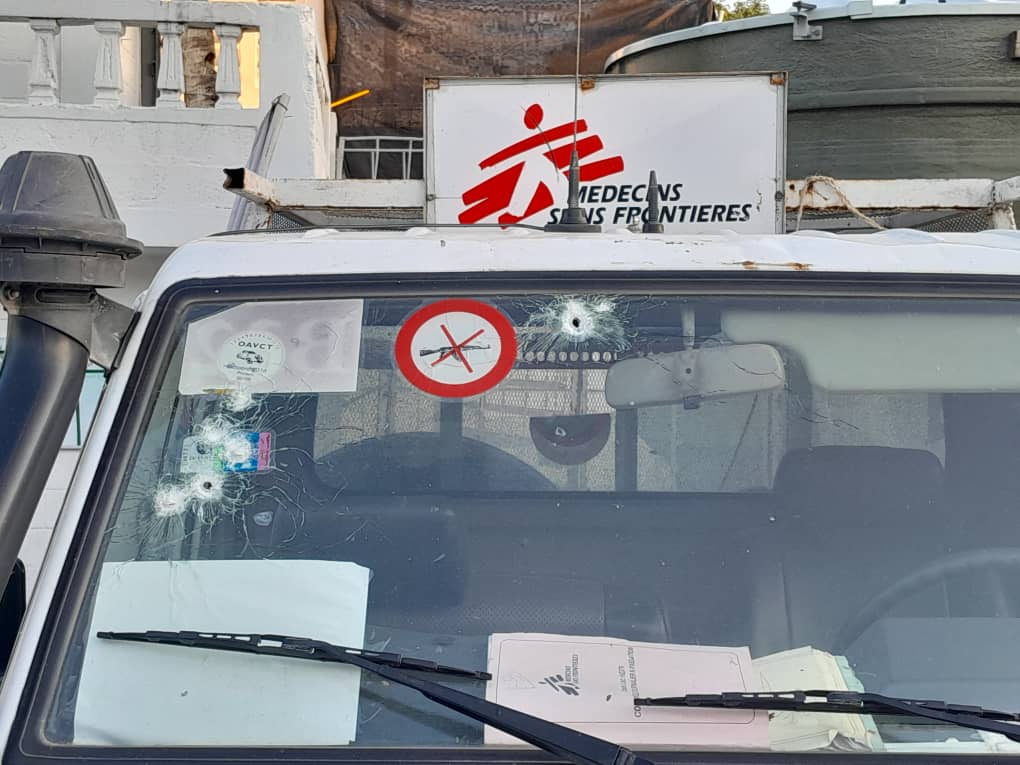
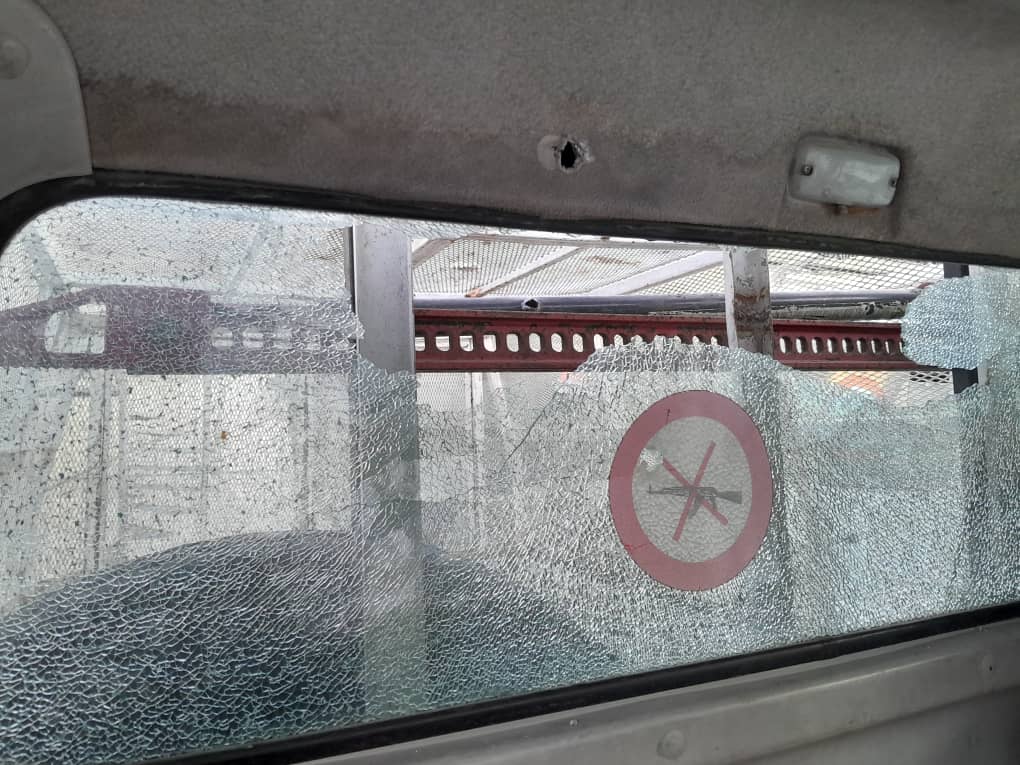
For over 30 years, MSF has responded to the major crises that have hit Haiti–earthquakes, hurricanes, cholera epidemics–and continues to support people in the face of the current violence. However, MSF staff cannot continue risking their lives to provide this service. Previously, on Nov. 22, 2024, the organization had to suspend all operations for around three weeks due to repeated attacks and threats against its staff. This is the second critical incident the organization has suffered in the last four months and MSF is still waiting for the results of the investigations carried out by the Haitian authorities.
“The extreme suffering of people in Haiti makes this decision all the more heartbreaking, but a dead or injured doctor or nurse can do nothing for patients in need. We reiterate our appeal to all parties concerned to respect the medical mission and ensure the protection of health structures, ambulances, patients and staff,” says Benoît Vasseur.
MSF has been active in Haiti since 1991 and continues our activities in the Tabarre trauma hospital, Cité Soleil emergency centre, Pran Men’m clinic for sexual violence survivors and in the southern department of Port-à-Piment, as well as mobile medical clinics to several sites for displaced persons and disadvantaged neighbourhoods.
